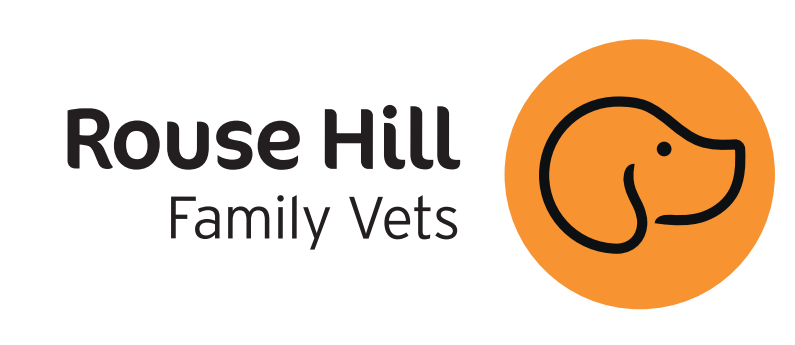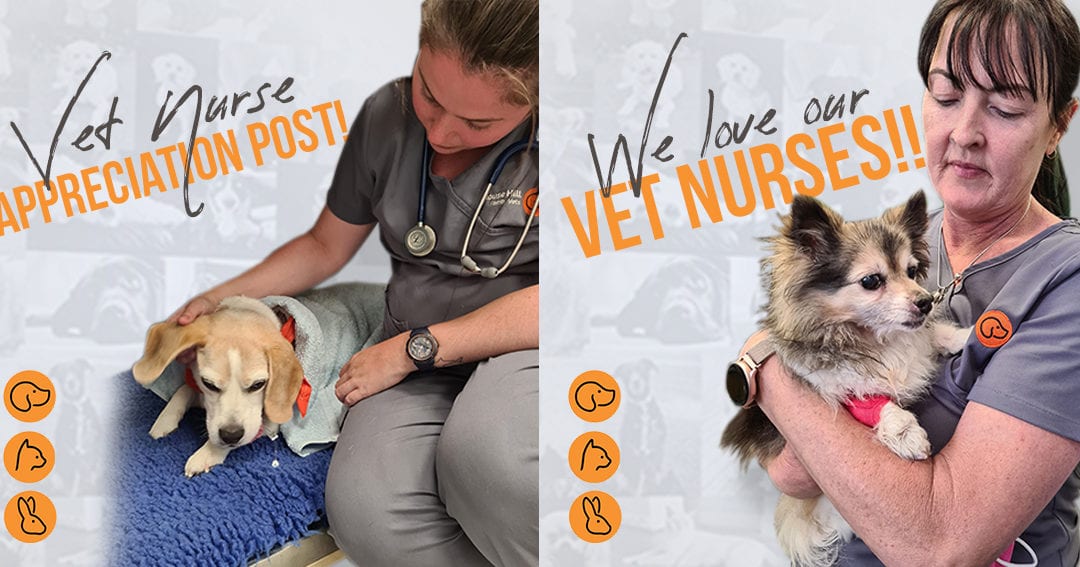Did you know that a qualified vet nurse does around two years’ worth of training and experience before they get their certification? Yep, our vet nurses do a lot more than what clients may see out the front!
So what do our nurses do all day?
(A quicker response may be what do they NOT do?!)
- Vet Nurses are our receptionists. This is how most people picture a vet nurse – greeting our clients and patients and making sure they’re nice and comfortable in their consult room. They answer the phone, do follow up calls to see how your pet is doing, take payments, and book you in for your next visit. They’re the ones out the front, providing comfort to the owners when something serious might have happened. They’re always ready with the tissues and are incredibly empathetic.
- Vet Nurses are dental hygienists. Here at Rouse Hill Family Vets, Grade 1-2 scale and polishes on healthy pets are quite often done by our nursing staff (under veterinary supervision). They are also trained to take dental x-rays and let the vet know if there’s anything nasty going on below the gumline.
- Vet Nurses are pharmacists – our nurses are often the ones handling and dispensing the medications as prescribed by the veterinarian, ensuring it’s correctly labelled with clear instructions.
- Vet Nurses are radiology assistants. They assist the vet with positioning patients for x-rays, ultrasounds, and any other forms of imaging that may be needed.
- Vet Nurses are phlebotomists. They attach cannulas, collect blood samples, and quite often are the ones running the tests for the vet. They also run many other diagnostics, such as urinalysis and faecal floats!
- Vet Nurses are surgical assistants. Anywhere from sterilising the equipment to actually monitoring the anaesthetic, our nurses are there admitting your pet for surgery and making sure they receive the best cuddles when they wake up!
- Vet Nurses are emergency triage. Quite often, when your pet comes in for an emergency, the first people they will see will be the nurses, who help stabilise the patient, putting them on fluids, supplying oxygen therapy, and providing immediate first-aid until a veterinarian is ready to take over.
- Vet Nurses are your pet’s treatment provider. If your pet has to stay in hospital with us, it will generally be the nurses giving the medications, checking vitals, wound and pain management, ensuring your pet is comfortable, taking them out for walks, and providing food and water.
- Vet Nurses are technicians. They maintain the expensive equipment like the anaesthetic machines and circuits, making sure they’re up to code and working properly.
- Vet Nurses are cleaners. Part of their job is to clean the consult rooms and ensure the whole hospital is up to standard in terms of hygiene and cleanliness. They are constantly washing towels and other laundry too so that our patients can receive fresh bedding during their stay.
- Vet Nurses are educators. Have you got a hundred questions about your first puppy or kitten? Want to know the best parasiticides to use? If your pet is on the correct diet? The vet nurses are a wealth of knowledge and experience and are usually your first port-of-call when fielding the queries new pet owners may have. Some of our vet nurses even run our Puppy Preschool classes for more in-depth training!
- Vet Nurses are administrators. They order supplies and unpack deliveries. They’re fixing the printer when things go wrong and writing up the newsletter to send out to clients. They run the social media pages and reply to your questions on Facebook.
- Vet Nurses are personal assistants. They take down messages for our vets and help the vets out in-consult if needed. They’re the ones keeping the vets in line – telling them about appointments that are running a little late or reminding them to eat something before things get too crazy! They make the tea and provide comfort to our human friends (not just our animal ones).
Our vets are absolutely amazing – but they just simply could not do their jobs without a stellar nursing team behind them! Our nurses’ jobs may not always be licks and puppy cuddles (sometimes it’s pee-catching and anal-gland relieving), but they are so much more than what we see on the surface.
Next time your pet is being discharged from the hospital, make sure you thank the nursing staff as well as your vet – as they were likely just as critical in ensuring your pet was comfortable and looked after in the clinic.
THANK YOU, VET NURSES!! 🥰🐶🐱🐰

